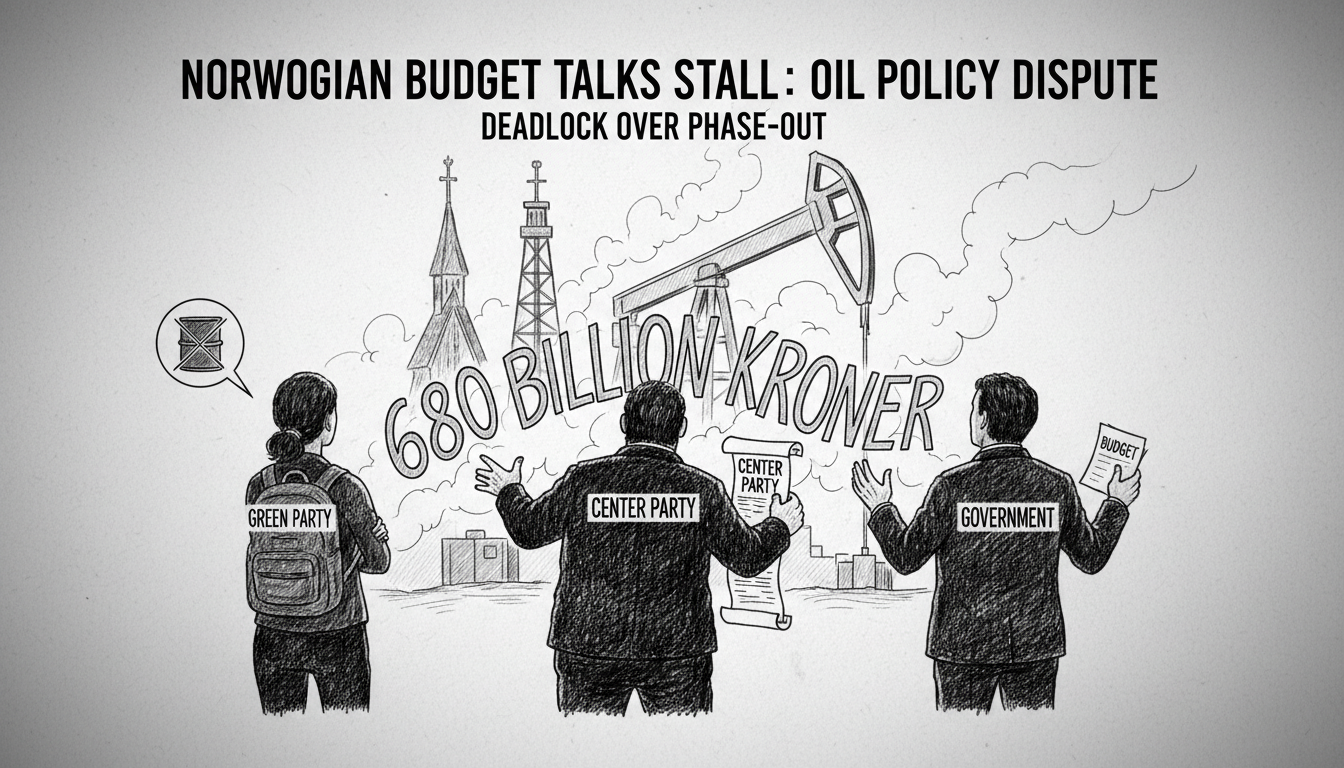Budget negotiations in Oslo have reached a critical impasse over demands for radical changes to Norway's petroleum policies. Center Party leader Trygve Slagsvold Vedum declared any fundamental restructuring of oil and gas policy during late-night parliamentary sessions completely unacceptable. The Labor Party faces dwindling days to reach agreement before Sunday's budget deadline expires.
Vedum's strong opposition targets Green Party demands for a comprehensive phase-out plan for Norway's petroleum industry. The Green Party seeks a managed transition away from oil and gas extraction while maintaining 80 percent of oil revenues during the shift. They argue this approach would secure stable gas deliveries to EU nations while meeting climate commitments.
Norwegian oil revenues reached 680 billion kroner last year according to government figures. This generated 20 billion kroner in extra budget flexibility through real returns alone. That amount nearly matches the entire operating budget for Norway's national police force. The petroleum sector remains Norway's dominant economic engine despite growing climate concerns.
Vedum emphasized the industry's crucial role in national finances during an interview at his parliamentary office. He acknowledged all parties recognize petroleum as a non-renewable resource that will gradually employ fewer workers. But he rejected sudden policy shifts made without proper review processes. The Center Party leader warned against sending dangerous signals to Norway's largest industry during volatile energy markets.
Political tensions are rising in Storting corridors as negotiations enter their second week. Talks have stretched from early mornings until late nights with substantial gaps remaining between the five potential governing parties. The Labor Party and its budget partners have recently opened discussions about oil policy within budget negotiations according to parliamentary sources.
Vedum referenced the passenger airline tax introduced during previous government budget talks as a cautionary example. He noted the tax led to Rygge Airport's closure despite no parliamentarians anticipating that outcome during late-night voting. The Center Party leader stressed that mistakes in oil and gas policy could prove dramatically consequential for the entire nation.
The Green Party leader remains unmoved by Vedum's criticisms. He maintains his party's oil demands align with Center Party interests by ensuring stable energy supplies and maintaining revenue streams. He accused Vedum of employing radical oil policies through continued drilling expansion while blocking transition planning.
Parties have also begun discussing policy text related to Palestine according to negotiation insiders. This represents another challenging issue in this year's budget discussions alongside the petroleum policy debate. Parliamentarians face a Sunday deadline to complete negotiations or must pass a formal extension in Thursday's parliamentary session.
The current standoff reflects Norway's broader struggle to balance economic dependence on petroleum with climate responsibilities. The country operates the world's largest sovereign wealth fund built on oil revenues while committing to ambitious emission reduction targets. This tension between present economic needs and future environmental commitments defines contemporary Norwegian energy politics.
Norwegian petroleum operations span from mature fields in the North Sea to newer developments in the Barents Sea. Major installations include Johan Sverdrup field in the North Sea and Snøhvit in the Arctic. The government manages these resources through licensing rounds and mature area allocations that have become central to current budget debates.

